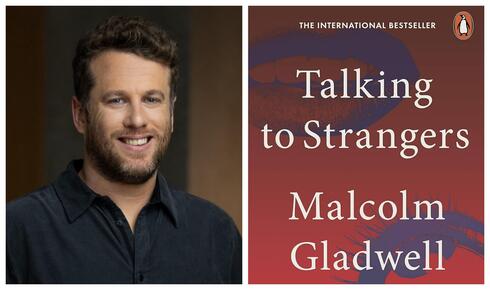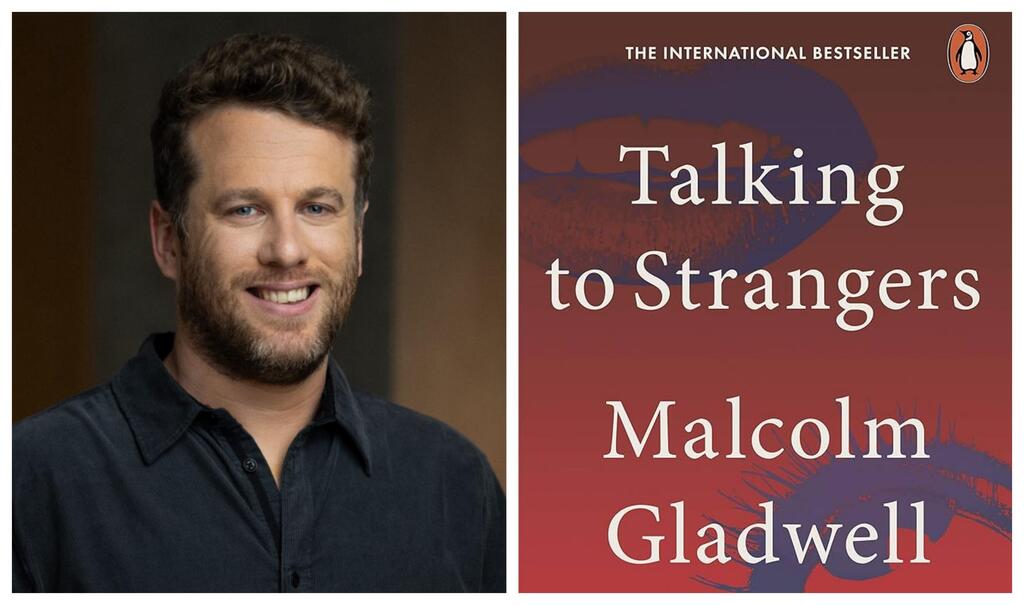
BiblioTech
CTech’s Book Review: How to talk to strangers
Maor Fridman, General Partner at F2 Venture Capital, has joined CTech to share a review of “Talking to Strangers” by Malcolm Gladwell.
Maor Fridman is the General Partner at early-stage VC firm F2 Venture Capital. He has joined CTech to share a review of “Talking to Strangers” by Malcolm Gladwell
Title: “Talking to Strangers”
Author: Malcolm Gladwell
Format: Book
Where: Home
Summary:
In ‘Talking to Strangers’, Malcolm Gladwell explores why we often misunderstand or misjudge people we don’t know, revealing just how much we fail to understand about others. Drawing on real-life stories—from pivotal moments during the Cold War and Cuban Missile Crisis to figures like Neville Chamberlain and Bernie Madoff—Gladwell shows how assumptions, biases, and a lack of context can lead to serious failures. The book pushes us to rethink how we evaluate others and helps unpack the complexity of human interactions. The book offers a thought-provoking exploration of why communication with strangers often goes wrong and what we can do to bridge those gaps.
Important themes:
Default to Truth:
Gladwell explains that people naturally assume others are honest unless there’s a clear reason to doubt them—a behavior he calls “default to truth.” This tendency is critical for our society to function. Without it, trust and collaboration would fall apart. But this instinct to trust also makes us vulnerable. In a memorable example, Gladwell shares psychologist Tim Levine’s study, where participants watched videos of people making truthful and deceptive statements and had to identify the lies. The results showed people were only slightly better than chance at spotting lies, showing how deeply rooted our tendency to trust is—especially when there’s no clear reason to doubt someone.
The Importance of Context:
Gladwell emphasizes that actions only make sense when you understand the broader context behind them. He shares the story of Sandra Bland, a Black woman whose routine traffic stop in Texas tragically ended with her death in jail. Gladwell explains how the officer’s assumptions and Bland’s fears—shaped by their very different experiences—escalated into a series of misjudgments. Through a series of examples, Gladwell shows how ignoring context can lead to misunderstandings, bad decisions, and avoidable conflict. To truly understand someone’s behavior, we need to look deeper to gain the full picture.
The Dangers of Overconfidence:
Gladwell highlights how even experts—like judges and intelligence agents—often overestimate their ability to read people. This overconfidence can lead to serious mistakes, especially when dealing with someone for the first time. He shares the story of Ana Montes, a U.S. intelligence analyst who spied for Cuba for years without being caught. Despite their training, her colleagues didn’t suspect her, proving that even highly skilled professionals can be misled. It’s a powerful reminder that overconfidence in our judgment creates blind spots and that we should always challenge our assumptions.
What I’ve learned:
Evaluating early-stage startups is one of the most important—and toughest—parts of my job. Founders often come to us with ideas they’re deeply passionate about, and due diligence isn’t about catching someone in a lie—it’s about understanding the person behind the idea: their motivations, intentions, and decision-making process. The challenge? We only get a short window—just a few meetings—to assess the founding team, which, at our firm, we believe is the single most important factor in a company’s success. Gladwell’s ‘Talking to Strangers’ offers a helpful framework for having these conversations and avoiding quick judgments or shallow assessments.
Trust is at the heart of any founder-investor relationship, but, as Gladwell points out, it has to be paired with real understanding. For me, this means asking the “right questions.” It’s not just about what a founder has accomplished, but why they made certain choices, how they approach challenges, and what they aim to achieve in life. This helps me better understand their thinking and motivations on a deeper level.
Context is just as important. A founder’s decisions are shaped by their experiences and environment, and ignoring this can mean missing the bigger picture. That’s why I never rely on resumes or try to fit founders into a predefined mold. Instead, I take the time to develop a more nuanced understanding of who they are.
Gladwell’s insights on overconfidence are a reminder that no matter how experienced you are, it’s easy to misjudge people, especially in first meetings. This has pushed me to stay curious and avoid relying on assumptions. I aim to ask questions that uncover how someone thinks and what drives their decisions. It’s not always easy, but taking the time to truly understand someone often reveals the details that matter most.
Critiques:
While ‘Talking to Strangers’ is thought-provoking, the book’s focus is on raising questions rather than offering clear solutions. The book challenges readers to rethink how they judge and interact with others but leaves much of the application to personal interpretation.
However, this open-ended approach is also one of its strengths—it sparks reflection and discussion, offering a good framework for understanding the complexities of trust, communication, and human behavior.
Who should read this book:
This book is a must-read for anyone whose work depends on trust and high-stakes decision-making—whether you’re an investor looking to assess an investment opportunity, an entrepreneur building a team, or a leader managing complex relationships. It offers clear and practical insights into why people behave the way they do and how misunderstandings happen, even when intentions are good.














